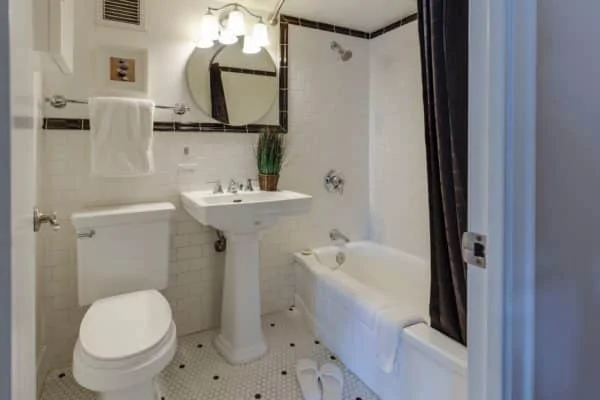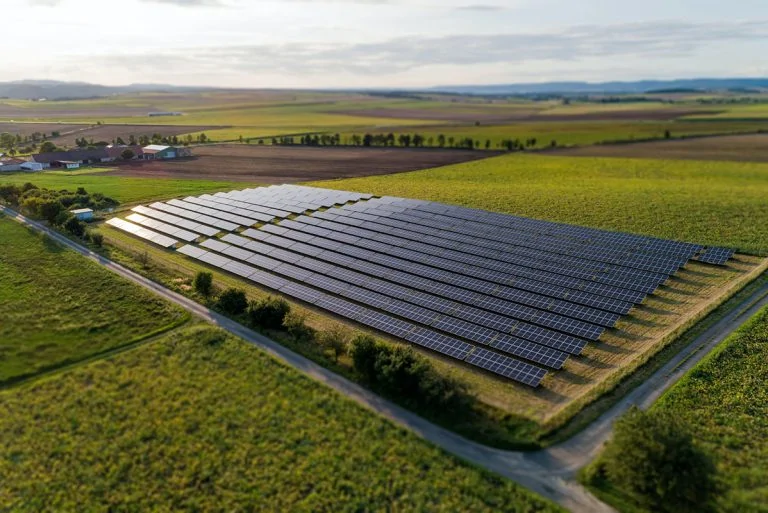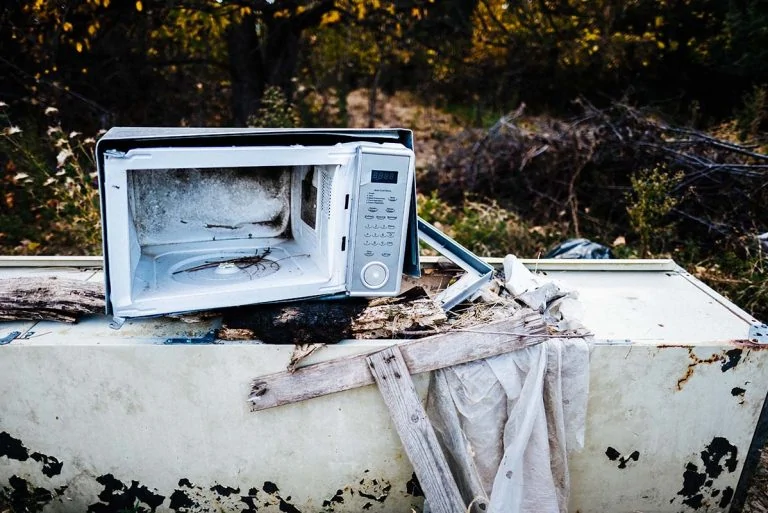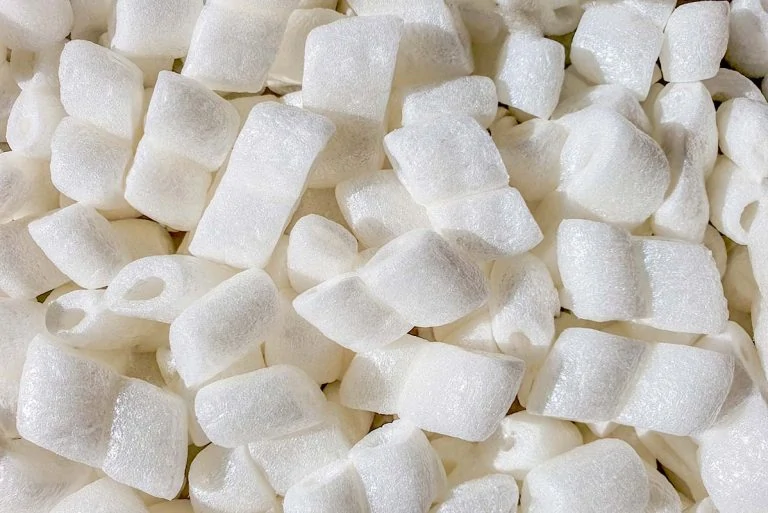Are you in a crossroad wondering whether to install a composting toilet system or a traditional one? Here are some composting toilet pros and cons that can help you reach your decision.
Composting Toilet Pros and Cons: Is This Effective?
Taking care of our environment is something that people are currently embracing and are trying to do it in every aspect of life.
Whether it’s trying to reduce carbon emissions or finding eco-friendly ways to recycle plastic, people are really trying.
Some people see composting toilets as being part of taking care of the environment, and in this article, we will look at various composting toilet pros and cons.
Composting toilets are an invention that was created to function without water. They use a natural process to get rid of human waste from our homes.
Therefore, adapting the use of composting toilets is a smart solution to eradicating human waste that every household should consider.
However, with all the advantages that come with composting toilets, there are still some downsides that we should discuss.
It is prudent that we understand both the pros and cons of this invention so as to make informed decisions.
But before that, let’s get a quick overview of what composting toilet are, and how they function.
What is a Composting Toilet?
Simply put, composting toilets are a category of toilets that use a biological process we refer to as composting, to treat human waste. The composting process involves decomposing of the organic matter, to turn the waste into a compost-like material.
However, the process doesn’t eradicate all the pathogens.
The composting process is made possible by the existence of aerobic microorganisms, (primarily fungi and bacteria), which function under a controlled aerobic environment.
Since most composting toilets don’t use any water, they are hence referred to as “dry toilets.”
How Composting Toilets Work
A composting toilet is not a complicated affair at all. Just like a compost pile, a composting toilet works in a similar manner. The system also operates in the same way as the traditional garden composter as it reduces human wastes using natural processes.
The natural methods used to reduce these wastes in this process include decomposing and evaporating.
What makes this method possible is that the contents of human waste mainly contain water. The rest of the waste that is not water can easily be broken down to be used as fertilizers.
Naturally, composting toilets are made to work in the absence of water. Therefore, the waste is instead dropped int a composting compartment, from where the waste is separated into liquid waste and solid waste.
This is mostly done by using a slope which allows the force of gravity to take its course.
In addition, the composting chambers contain bacteria and fungi, which breakdown the waste under aerobic environment. Also, most composting toilet designs require carbon additives like coconut coir, sawdust, or peat moss after every use.
The additives are meant to create air pockets in the waste to encourage aerobic decomposition.
These additives are also used to reduce the amount of potential odor. A large number of composting toilet systems, depend on a composting called mesophilic composting.
In composting toilets, you cannot forget ventilation. A ventilation shaft is included to allow oxygen to pass through into the composting chamber, which helps the microorganisms to survive.
The vent also allows harmful gases to be released outside to avoid odor in your house.
The last thing in this process is the access point, where waste can be removed through after composting.
See Related: Are Plastic Straws Recyclable?
Advantages of Composting Toilets
Here are some of the many pros of using a composting toilet over alternatives.
-
Composting Toilets are Eco-friendly
Since people have now become more and more conscious about the environment and how we humans affect it, being eco-friendly is a big plus. When trying to explain the benefits that come with this system, the first question that most people ask is whether the system is environmentally-friendly.
The answer I always give if countered by such a question is a big “YES.” The system is as eco-friendly as it can be.
They have a 0% effect on the environment. Also, the system does not use water for decomposing, and therefore, it is an excellent option for water conservation.
Again, the end products of this process can be used as fertilizers to improve the growth of plants around us. This way, we conserve the environment in all ways.
The composting toilets are an excellent waterless toilet choice, especially for houses that do not have a septic system or for remote cabins.
For those who want to go green in human waste eradication, composting toilets are the way to go.
In addition to a composting toilet, you can minimize your impact on the environment by also switching to zero waste toilet paper.
-
Composting Toilets are Cheaper
Although the technology used in composting toilets to remove solid waste is more advanced, the toilets are still cheaper than the traditional toilet systems. The systems are more affordable both in the installation stage, as well as in maintenance.
While the cost of installing a traditional toilet will cost you more than $1,500, a composting toilet will cost you nothing more than $ 1000.
This makes composting toilets a bit tempting as they also have fewer installation requirements.
-
Composting Toilets are Easy to Clean and Maintain
Another reason why composting toilet has become so popular is that they are very easy to clean. Unlike the traditional ones, composting toilets do not require other working parts such as septic systems and pipes, among others.
For example, if there is a leak in a traditional system, you will have to spend a lot of time looking for the leak.
However, in a composting system, this doesn’t usually happen. This means that maintenance of composting systems is quick, direct, and effective.
Also, although some few things may go wrong with a composting toilet, it is easy to find and correct the problem.
See Related: What is Greywater Overview?
-
Many Manufacturers Offer Forever Warranties.
Some composting toilet manufacturers offer warranties forever on their products. This shows how confident they are with what they produce, as well as the service these toilets will provide you with.
Together with the cost saved from not using 30,000 gallons of water each year for a small family of 4, these toilets are economical.
-
They Save on Space
If you don’t have much space where you live, then a composting toilet is an excellent option for you. For example, if yours is a studio apartment or even smaller, a composting toilet will serve you perfectly.
They are small, which makes it easier for you to put it in your small bathroom just the way you want it.
In addition, the fact that these toilet systems do not require a septic system saves you a lot of space. For this reason, composting toilets have become popular even in remote areas.
-
Relieving Burden from the Existing Toilet System.
When you start using composting toilets, you can reduce the burden associated with the present plumbing systems. This is very helpful for homes that experience high demands for septic systems or those that have low water PSI.
When you install a composting toilet, the water, as well as the waste removal resources, are easily redirected to another area of the home that requires it.
The process helps to recycle waste in a way that doesn’t overwhelm anyone.
Disadvantages of Composting Toilets
Despite having various significant advantages, composting toilets still have some few issues or drawbacks. Here are the major cons that come with a composting toilet system.
-
Some Composting Toilets Produce Odour
Since the process of composting the solid waste takes place inside the composite compartment, these toilets may produce an unpleasant odor. The odor may leak beyond your bathroom to the rest of the house, which may not be pleasant.
Even though the high-quality composting systems come with an in-built odor-lock mechanism, it can still leak. This normally happens if you don’t clean the toilet properly or fail to maintain it accordingly.
A composting toilet differs with the traditional ones in that; you have to clean them at least twice a week. This is not the same for the conventional toilets which you only need to clean once in a fortnight.
In addition, when choosing a toilet system, a centralized composting system can be challenging in terms of controlling the odor.
And for this reason, we recommend a compartmentalized system when you want to consider composting toilet pros and cons.
-
Peat Moss Menace
With composting toilets, peat moss is requisite that you should have. And, although the peat moss is the dried form of peat that you need to clean around your toilet, it can spread anywhere in the bathroom.
The process of cleaning the peat moss bucket can be an uphill task, with it spreading all over and sticking on anything around.
-
Additional Electricity Bill
Although this may not be a major drawback for several composting toilets, some high-quality ones run on electricity. The electricity makes up for not using water in the composting toilets.
In addition, the feature needed to enhance ventilation, or reduce the bad smell, need a power supply to work efficiently. This definitely will add some extra figures on your monthly electricity bill.
-
Construction
Another possible drawback of the composting toilet system will be the construction of the proper system it requires.
Whereas the process of installing the composting toilet is easy, you must ensure that it properly linked to a reliable greywater system. This helps to contain any contaminants.
Also, you have to build a proper ventilation system to ensure that unpleasant odor does not seep back to the house.
-
Extra Compost Maintenance for the Single Units
In a single unit composting system, there is always a combination of dry and wet waste in the basin. The reason behind this is because fresh waste always adds up on top of the dry waste. The addition, in turn, creates varying levels of composting in the same basin.
The inconsistency in the composting process might make the distribution of compost to become difficult. In return, this forces the homeowners to seek the services of septic haulers, which is an additional cost.
-
Need for a Special Permit
Although under the international building codes, the installation of composting toilets is okay, some local codes in certain communities may restrict their installation. Therefore, it is prudent that you confirm with your local city authorities before you buy a composting toilet.
You should also check with the code enforcement agency about which codes and regulations you need to follow.
Conclusion on Composting Toilet Pros and Cons
The above composting toilet pros and cons indicate that although the composting toilet systems can be valuable, there are still some drawbacks that need to be checked.
Before you can purchase that composting toilet, make sure that you consider all your options.
I believe this article will help you to make an informed decision on your next purchase.
What do you think of composting toilets? Kindly comment in the comments section below











